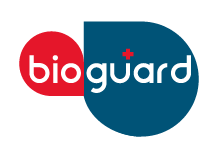FDA seeks details on antimicrobial use, resistance in companion animals
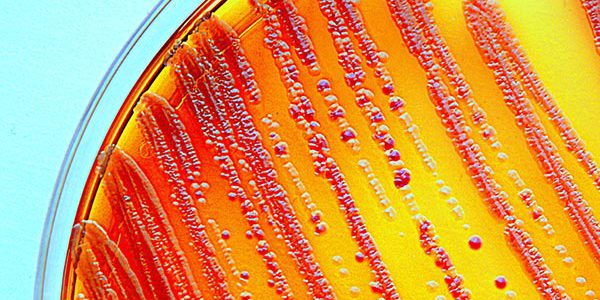
Food and Drug Administration officials want help collecting data on how antimicrobial administration to companion animals affects development of drug resistance. A Feb. 15 announcement from the FDA Center for Veterinary Medicine indicates the FDA needs to better understand how drug use in animals such as dogs, cats, and horses might impact antimicrobial resistance in pathogens of animals and people. Details on the request for comments are available at regulations.gov under docket number FDA-2021-N-1305. Comments are due June 16. A Federal Register notice published Feb. 16 says FDA CVM officials want descriptions on how practices of antimicrobial use in companion animals may affect resistance development among bacterial pathogens of companion animals and of humans. Officials want to learn about concerns regarding resistance development related to particular antimicrobials or antimicrobial drug classes administered to companion animals, as well as how the importance of a drug to human medicine should be considered in decisions about whether to administer the drug to companion animals. The notice also asks how the CVM can encourage greater antimicrobial stewardship that could help preserve drug effectiveness, how the center can encourage development of new antimicrobials, what study designs present or reduce challenges for developing needed antimicrobial drugs, and whether any specific infectious diseases are— from a stewardship perspective—best treated with topical antimicrobial formulations. The notice asks what information on drug labels helps veterinarians follow the principles of antimicrobial stewardship, what additional information could help, and whether veterinarians need drug stewardship information that they can provide to clients. [Source: AVMA.org ] Read more…
American Veterinary Medical Foundation and Merck Animal Health to support relief efforts in Ukraine
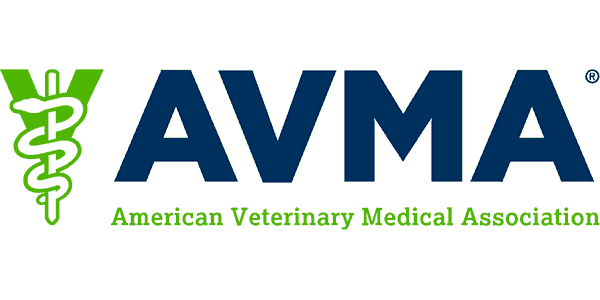
(SCHAUMBURG, Illinois) March 10, 2022—Responding to urgent relief needs in Ukraine, the American Veterinary Medical Association today announced that its charitable arm, the American Veterinary Medical Foundation , will direct a $100,000 donation from Merck Animal Health to help pets in need , to support veterinary and animal-welfare groups in the war-torn country and the surrounding areas. In addition, the American Veterinary Medical Foundation will be matching this grant from Merck Animal Health with a donation of $100,000. The AVMA is encouraging its 99,500 members and the general public to consider contributing to relief efforts by donating to the AVMF. The funding will provide food, medical care, disaster relief, and emergency support for veterinary and other organizations to protect animal welfare and the welfare of the care providers. The AVMF will be responsible for directing distribution of the funding. One hundred percent of the donations will be used to help those in need and animal care. “People and animals in Ukraine desperately need help, and we are very grateful to Merck Animal Health for its generosity,” said Dr. Douglas Kratt, Chair of the AVMF. “Merck Animal Health is proud to team up with the AVMF and hope these funds go a long way to protect the health, welfare and safety of pets in the Ukraine and neighboring countries,” said Dr. Christine Royal, Associate Vice President, US Companion Animal and Equine, Merck Animal Health. “Many organizations, including veterinary medical facilities, animal shelters and animal rescue groups in Ukraine and neighboring countries, are courageously providing care to people and animals affected by the crisis,” noted Dr. Jose Arce, President of the AVMA. “But they can ‘t do it alone, so we encourage AVMA members and the public to contribute to our relief efforts. Together, we can make a difference and support people, animals and those who care for them.” For those who would like to donate and help veterinarians help animals, please visit the AVMF website. [source: AVMA ]
The pet industry in the Benelux: an update
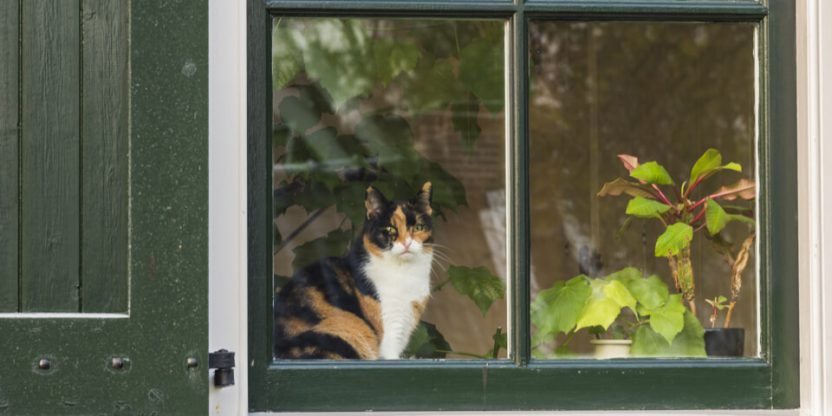
[Source: by GlobalPETS News Team ] How is the pet industry doing in Belgium and the Netherlands? How has it been affected by COVID-19? Almost half of the households in the Netherlands own 1 or more pets. The latest results from a survey conducted by I&O Research show that in 2021 a quarter of Dutch households owned 1 or more cats. Dogs come in second: 18% of Dutch households own a dog. A Belgian Ivox survey confirms that we all love pets more than ever, with 52% of Belgian families owning at least 1 pet. Most owners are young families with children (64%). Yet, remarkably, the average owner has not 1, not 2, but 3 pets. This could be anything from fish or parakeets to tarantulas or ferrets. Cats and dogs are still the most popular, with 1 in 3 families in Belgium (31%) owning a cat, and almost a quarter (23.6%) owning a dog. The COVID effect on pet ownership In the Benelux countries, as in other regions, there has been a rise in the total number of pets since the start of the pandemic. Pets provide comfort, support and companionship in difficult times, and people have been able to spend more time caring for them while working and staying at home. Dutch studies show that attitudes to pet ownership have changed positively for 1 in 5 consumers as a result of the COVID pandemic. For example, 8% of Dutch households acquired a pet during the first year of the pandemic (in 2019 this was just 6.4%). Although lack of time remains the most frequently mentioned reason for not having pets, this has been said less since the COVID crisis began. The pandemic has also had a positive effect on pet ownership in Belgium: 11.6% of Belgian households welcomed a new pet during the first year of the pandemic, and a quarter of them (25%) did so very much because of the pandemic.
1 month of war in Ukraine: local pet industry fights to keep the business going
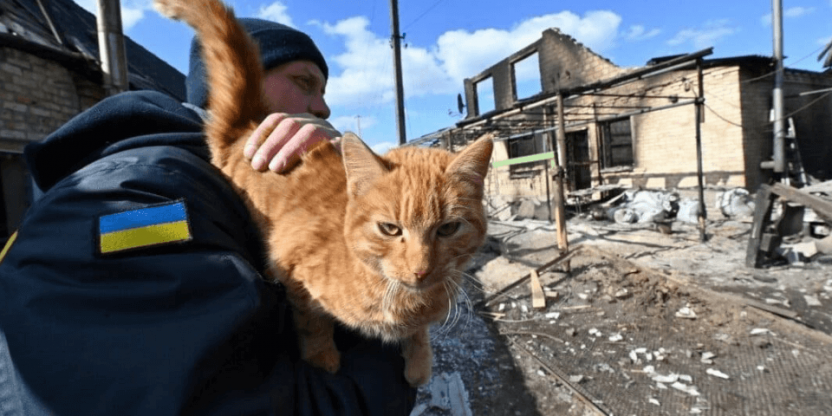
Distribution centers and a number of pet shops have been destroyed by airstrikes since the start of the Russian invasion on February 24th. The main priority now is recovering the activity and assisting animal shelters across the country. Feeding 100,000 dogs and cats In a difficult time for local players to continue with the business, several initiatives are trying to help those animals that remain in the country. “Save Pets of Ukraine”, led by local manufacturer Kormotech, has distributed more than 146 tons of pet food since it started working 20 days ago. In addition, 514 pet care volunteers and animal shelters received assistance. “We keep working. We are looking for opportunities to save more cats and dogs,” the company said to GlobalPETS. Kormotech is also partnering with US-based Greater Good Charities, which is collecting cash donations overseas. The organization is also collecting product donations from US companies and shipping them to Europe. [Source: Global Pet Industry] {image by David Palacios Rubio}
Taiwan to launch a new government department for pets this month
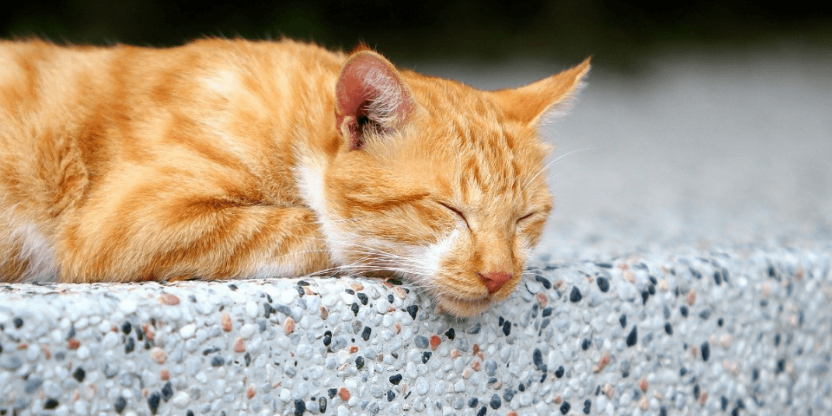
Author: David Palacios Rubio The new section in the country’s Council of Agriculture will manage all aspects of pets’ lives “from birth to death” amid a boom in the local market. The government said that the new department will oversee the whole industry, from pet food to grooming, training, pet-sitting, and pet insurance. “There are about 7 million households in the country, of which 2 million are registered as having pets,” said Minister Chen Chi-chung. Official data shows that the Taiwanese pet industry is worth NT$50 billion (US$1.74M) annually and that 2.3 million pet dogs and cats are officially registered in the country. The department will have an annual budget of NT$130 million (US$4.5M) and it is expected to be officially established this April, a spokesperson of the Taiwanese government (Executive Yuan) confirmed to GlobalPETS. The Taiwanese Ministry of Finance recently said that the number of pet businesses has increased in the last decade. While in 2009 there were 3,734 companies in the pet industry, the number raised to 7,207 in 2020. [Source: Global Pet Industry ]
Russia compromises to ease imports after SOS call from local pet industry

Source: [ GlobalPets ] Author: [ David Palacios Rubio ] Official figures presented during a recent industry meeting show that pet food imports are decreasing by 20% against last year. In a meeting held by the Federal Service for Veterinary and Phytosanitary Surveillance (Rosselhoznadzor, RSN), head Sergey Dankvert stated that the regulator is ready to propose rules to simplify the clearance of goods. According to Dankvert, the RSN has not restricted ed the import of vitamins, and today’s import volumes depend on each country’s particular decision . Official figures from the federal executive body show a “significant drop” in pet food supply from Germany (-27%), followed by Denmark and Norway. The head of the RSN also showed his surprise th at supplies from France, Italy, Hungary and Austria are also decreasing. Imports of pet food and ingredients from those European countries have never been suspended by Russian authorities. Dankvert compromised with the pet industry to authorize new pet food suppliers. Yulia Dolzhenkova from Zooinform told GlobalPETS that talks are underway with China, Brazil and Argentina . Kirill Dmitriev from the National Pet Business Association highlighted that it is “ absolutely critical ” to resume imports. “ This would allow importers to increase pet food supply volumes to Russia ,” he said. Dmitriev also urged a simplified authorization procedure for the new plants and countries to maintain pet food and food supplements in Russia at a sufficient level and avoid shortages. [Image: David Palacios Rubio]
4 Easter pet safety tips to save clients from holiday disaster
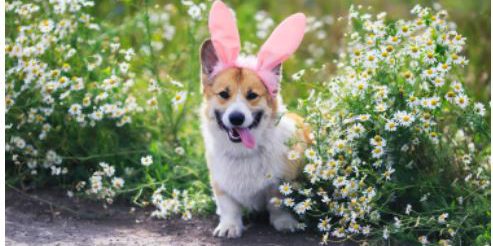
With Easter just around the corner, now is the ideal time to remind clients and about the dangers presented to pets by this holiday. According to a press release from BluePearl Specialty and Emergency Pet Hospital, their clinics see an incredible 321% increase in chocolate toxicity cases during Easter each year.1 In addition, the National Confectioners Association expected Easter candy sales to increase by 5% to 7% in 2022, potentially putting more pets at risk.2 On top of chocolate toxicity, other popular sweets like jellybeans and xylitol pose a danger to pets that may not be as widely known amongst pet parents. BluePearl offered these 4 tips that you can share with your clients to help pet parents keep their loved ones save during the Easter holiday: 1. Know the dangers. Many clients know about the dangers of chocolate toxicity in dogs, but it’s important they know the signs and symptoms so they can spot an emergency. It’s best to remind clients that chocolate poisoning symptoms usually appear within 12 hours and can last up to 3 days. Symptoms may include excessive thirst, vomiting, diarrhea, restlessness/hyperactivity, tremors, abnormal heart rate, hyperthermia, and rapid breathing. In more severe cases, dogs can experience heartbeat irregularities, coma, or death. Read more… Source: DVM360 Image: [ BluePearl Specialty and Emergency Pet Hospital , a dvm360® Strategic Alliance Partner ]
38th World Veterinary Association Congress
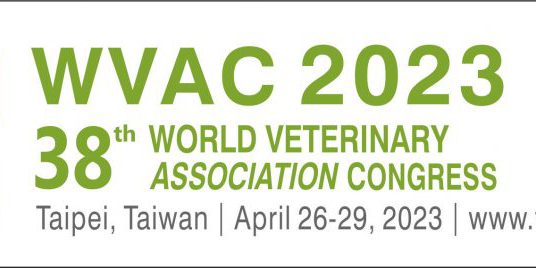
The World Veterinary Association (WVA) is delighted to announce and to invite you to the 38th World Veterinary Association Congress (WVAC2023) that will take place in Taipei, Taiwan on April 26-29, 2023. Take this opportunity to enhance your continuing education in veterinary science, to meet colleagues from all over the world, and visit the wonderful island of Taiwan. The WVAC2023 will provide a unique and informative experience for veterinarians across all disciplines of the profession to come together to explore the challenges that veterinarians face not only regarding the health and welfare of animals, but also of our environment. The conference will host leading speakers from around the world to present and discuss the latest knowledge and innovations in veterinary medicine, demonstrating the value of the profession for the public good in our fast-changing world. Join us in Taipei to celebrate the veterinary profession, expand your knowledge and to enjoy the exotic island of Taiwan. Click here for the congress website. [Source: World Veterinary Association]
World Veterinary Day 2022 recognizes veterinary resilience
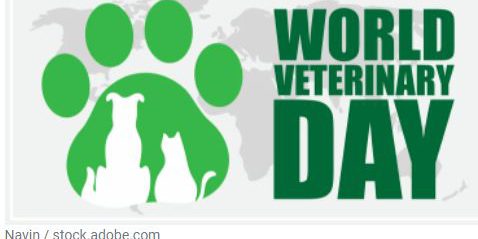
orld Veterinary Day on April 30, 2022 is an opportunity to recognize and celebrate all the contributions veterinarians make to the health of animals. The theme this year is “strengthening veterinary resilience.” 1 The World Veterinary Association (WVA) first created World Veterinary Day in 2000 as an annual celebration of the veterinary profession and the hard work all veterinary professionals do each year. World Veterinary Day takes place on the last Saturday of April each year. 2 Every year the theme changes and it is usually a reflection on that year’s top clinical concerns and topics. For example, last year’s theme was “veterinarian response to the COVID-19 crisis.” 2 With the recent crises happening around the world today, like the ongoing COVID-19 pandemic and the invasion of Ukraine, people in general have been facing large amounts of adversity. And in the veterinarian profession, stress, burnout, and other mental health issues have rose in recent years. 1 Before they can properly take care of their patients, veterinarians need the proper tools and support to maintain their own personal health and wellness. The World Veterinary Day theme highlights that “resilient veterinarians are better equipped to handle the daily challenges and crises that may occur in their practices,” according to an WVA press release. 1 [Source: DVM360] [Image:Navin/stock.adobe.com]
Hill’s and Vet-AI in preventive health collaboration

Paul Imrie Nutrition firm working with veterinary technology company, alongside third investor, aims to allow development of artificial intelligence-powered tech solutions for veterinary practices. A three-way collaboration has been agreed to develop future artificial intelligence (AI)-powered technology for use in veterinary practices. Hill’s Pet Nutrition and veterinary technology company Vet-AI have entered into a strategic collaboration to help advance the latter’s mission to improve preventive veterinary care. A third investor, Correlation One Holdings, is also involved in the partnership. The investments will help to scale up access to Vet-AI’s Joii Pet Care app, which provides a range of tools for veterinary practices to use. Digital care All parties hope the partnership will also open up digital veterinary care through the app to many millions more pet owners. Tools includes a free pet symptom checker, 24/7 consults with RCVS-registered vets in the UK and the ability book online behaviour sessions. The tie-up with Hill’s will add nutrition expertise to the Joii Pet Care offering. ‘Holistic care’ Vet Robert Dawson, co-founder of Vet-AI, said: “This important work gives us the ability to provide a truly holistic veterinary care offering, underpinned by expert knowledge and innovative technology. “Nutrition is fundamental to the life of a healthy pet, and we’re delighted to work with the esteemed Hill’s Pet Nutrition brand in combining our collective knowledge and expanded veterinary network. Together, we can improve the lives of pets and vets across the globe through improved data insights. Source: Vettimes.co.uk
